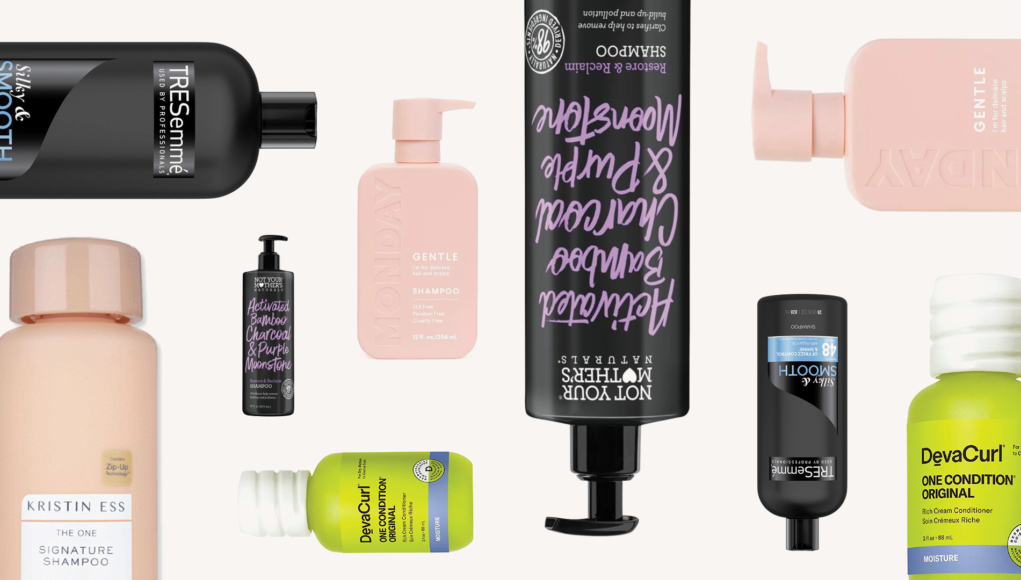If you have an obsession with makeup/skincare/haircare as much as I do, and you shamelessly splurge on all viral TikTok beauty products regularly, it’s safe to say that your wallet has probably seen better days. Basically, the only way I can (kind of) justify spending tons of $$ on whatever beauty product that’s buzzy atm is to cut corners elsewhere. My personal favorite hack? Get yourself a drugstore shampoo or conditioner.
With so many conditioner and shampoo brands available at grocery stores and drugstores these days, I can find what I need for a good price without feeling like I’m skimping out. Seriously—sometimes more money doesn’t always mean a better product. And guess what? Hair experts agree. That’s why we’ve consulted a few of the pros to give us the low-down on everything we need to know about drugstore shampoos and conditioners, and which ones are best, below.
And because I know that you probably want a lil’ sneak peek of the content to come, here are our top picks—but don’t forget to read all the good stuff too, kk?
Our top picks for the best drugstore shampoos and conditioners of 2022:
Meet the experts:
Nick Dindio is a cosmetic chemist and director of research and development for SOS Beauty, a brand development agency that oversees some of your favorite beauty brands’ (i.e., Ouai, Patrick Ta, Merit) strategy, commercialization, and more. Meri-Kate O’Connor is a Los Angeles-based hairstylist at Cooper Hair Salon in West Hollywood. O’Connor is a colorist, stylist, and extension expert. Tiffany Mack is a hairstylist in New Jersey and New York City, and the founder of Lucid Bliss hair care system formulated specifically to promote hair growth and prevent progressive hair loss. Giovanni Vaccaro is a New York City-based hairstylist and founding member of Glamsquad, a convenient in-home makeup, hair, and nails booking service.
Are drugstore shampoos and conditioners good?
“You can actually get very good quality products at a drugstore,” says cosmetic chemist, Nick Dindio. Hairstylist Meri-Kate O’Connor adds that drugstore lines have a wide range of products to address most concerns. With that said, you don’t want to grab the first bottle your hand hits in the aisle. It’s important to address your specific hair type and hair concern, so you have to know what to keep an eye out for.
What to look for in a drugstore shampoo and conditioner
Examine the ingredients
You want to look for a product that includes ingredients that nourish the hair while addressing your hair concerns. A good place to start? Oils. “Oils have so many benefits to hair, and they aren’t just for moisture,” says O’Connor, adding that tea tree oil also helps “get rid of any itchiness, as well as help with flaking,” while coconut oil helps “seal moisture into your hair” and argan oil “can also help protect hair from heat damage.”
And remember, “at the end of the day, read what you’re putting in your hair,” says hairstylist Tiffany Mack. Figure out which ingredients work best for you (and which ones don’t), then use that intel to help you seek out the right formulas. “You do want to make sure the shampoo you’re using, regardless of the price, is tailored to your hair’s specific needs, so you’re not wasting your money or hurting your hair,” says hairstylist Giovanni Vaccaro.
Consider your hair porosity
Another helpful factor in determining the best drugstore shampoo for your hair type? Your hair porosity. “If you know your porosity, it can help you to find a shampoo that goes great with your hair,” says Mack. Refresher: Porosity refers to your hair’s ability to absorb and hold moisture, which is super important when finding a formula that’s compatible with your hair.
Know what to avoid
As far as what you don’t want in your formula, that kinda depends. Dindio explains that while certain common ingredients aren’t necessarily bad (despite what the internet might tell you) and can be safe and effective, you could still have sensitivities to them, so choose your formulas based on what your hair and scalp needs and what they can handle.
If you have sensitive skin, colored/bleached hair, or your hair lacks moisture, look for a sulfate-free shampoo or conditioner. If you have fragile hair, fine hair that’s easily weighed down, or you’re trying to limit sulfates as much as you can, use a silicone-free shampoo or conditioner. You get where I’m going?
Now, for the fun part: Here are 19 of the best drugstore shampoos, and a few conditioners, under $20 for every hair type, below.








